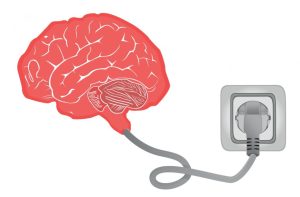In today’s fast-paced world, it’s easy to overlook one important aspect of self-care: giving your brain the rest it needs. Just as our bodies require rest to recover from physical exertion, our minds also need time to recharge. Whether you’re juggling work, family, or social obligations, constant mental activity can lead to burnout, decreased productivity, and even emotional distress. In this post, we’ll explore why resting your brain is crucial for your overall well-being and provide practical tips to help you recharge your mind.
Why Does Your Brain Need Rest?
Your brain is constantly at work—processing information, managing emotions, and making decisions. However, just like any other part of your body, it can get fatigued from overuse. Without proper rest, the brain’s cognitive functions can decline, leading to mental fatigue, stress, and an inability to perform everyday tasks efficiently. Here’s why it’s so important to give your brain a break:
- Mental Recovery – The brain works tirelessly to process information, regulate emotions, and control bodily functions. Without enough rest, this constant activity can deplete its resources, causing cognitive decline, forgetfulness, and difficulty concentrating.
- Stress Reduction – Chronic mental stress can lead to elevated levels of cortisol, the stress hormone, which can have negative long-term effects on both mental and physical health. Resting the brain helps to lower cortisol levels, reduce anxiety, and promote a sense of calm.
- Improved Focus and Memory – Mental rest is essential for cognitive function, particularly memory and concentration. Without enough recovery time, the brain becomes less efficient at storing new information, leading to lapses in memory and a decline in focus.
- Emotional Regulation – A tired brain can lead to emotional instability. When your brain doesn’t have time to rest, it becomes more difficult to manage emotions, resulting in irritability, mood swings, and heightened anxiety.
Signs Your Brain Needs Rest
How do you know when your brain is overworked? Here are some common signs of mental fatigue that indicate it’s time for a break:
- Difficulty Concentrating – If you find yourself unable to focus on tasks or getting easily distracted, it could be a sign that your brain is fatigued and needs rest.
- Increased Irritability or Mood Swings – Feeling unusually frustrated or upset over small issues is a sign of mental strain. A well-rested brain is better equipped to regulate emotions and deal with stress.
- Memory Problems – Forgetting things more often, such as appointments or names, can indicate that your brain is overwhelmed and struggling to process information effectively.
- Physical Symptoms – Tension headaches, eye strain, and even muscle tightness can all be physical symptoms of mental fatigue. If you experience any of these, your brain is likely overworked.
- Feeling Overwhelmed – When mental fatigue sets in, even the smallest tasks can seem daunting. If you feel like you can’t keep up with your to-do list, it might be time to take a mental break.
How to Recharge Your Mind: Practical Tips
Now that we understand why your brain needs rest and how to recognize the signs of mental fatigue, here are some effective strategies to help you recharge your mind:
-
Take Regular Breaks
During work or study sessions, make sure to take regular breaks. The Pomodoro Technique—working for 25 minutes, followed by a 5-minute break—is a popular method that helps you stay focused while allowing your brain to rest. Even short breaks can make a big difference in maintaining mental clarity.
Practice Mindfulness or Meditation
Mindfulness exercises, such as meditation or deep breathing, can help calm the mind, reduce stress, and improve focus. Even spending just 5-10 minutes a day practicing mindfulness can have a significant impact on your mental health.
Get Enough Sleep
Sleep is one of the most important ways to allow your brain to recover. Aim for 7-9 hours of quality sleep each night to support cognitive functions, emotional regulation, and overall brain health. If you’re sleep-deprived, it can be difficult for your brain to process new information and manage stress.
Engage in Physical Exercise
Physical activity is not only good for your body but also for your mind. Exercise helps release endorphins, which are natural mood boosters, and increases blood flow to the brain, improving mental clarity. Incorporate regular physical activity into your routine to boost both physical and mental well-being.
Disconnect from Technology
Constant exposure to screens, whether it’s working on your computer, scrolling through social media, or watching TV, can cause mental fatigue. Take time each day to unplug from technology and give your mind a break from the constant flow of information.
Spend Time in Nature
Nature has a calming effect on the mind. Taking a walk in the park, hiking, or simply sitting outside can help reduce stress and improve mental clarity. Spending time in nature allows you to disconnect from daily pressures and reset your brain.
Engage in Creative or Relaxing Hobbies
Hobbies like painting, drawing, knitting, or listening to music can help you relax and take your mind off of stress. Engaging in creative or relaxing activities is a great way to unwind and recharge mentally.
Practice Gratitude
Taking a moment each day to reflect on what you’re grateful for can help shift your focus from stress to positive thoughts. Keeping a gratitude journal or simply pausing to appreciate small moments can help reframe your mental state and bring calm to your mind.
By breaking up the section, it enhances readability, making it easier for readers to absorb and engage with the content.



